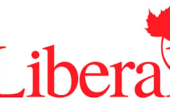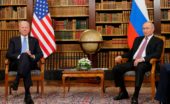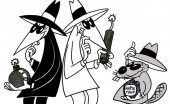Re Ian Bremmer 'Could third-party candidates upend the 2024 US election?' 3 April The current political movement in the USA…
Wednesday Night #1694
Written by Diana Thebaud Nicholson // August 20, 2014 // Wednesday Nights // Comments Off on Wednesday Night #1694
August 20th is the first anniversary of the death of our dear friend, Wednesday Night’s OWN Udo Stundner. We miss him and his cogent, often controversial (but offered in such a mild tone) commentary dearly.
This Wednesday Night we welcome Chantal Beaubien, on home leave from her work as Legal Officer at UNRWA (United Nations Relief and Works Agency for Palestine Refugees), West Bank. We look forward to hearing her first-person account of events over the past months in Israel and Palestine. In preparation she suggests a look at The Daily Show: We Need to Talk About Israel – watch and take heed
Chantal will also be introducing her old friend Stephane Vinois whose bio includes 10 years of military service as a combat engineer including three tours overseas: Bosnia 1999, Ethiopia & Eritrea 2000-2001, and Haiti 2004. In 2005, Stephane joined the RCMP and was posted to Surrey, BC in 2006.
There’s no improvement in the Israel/Gaza conflict. Once again a ceasefire has been broken and once again Israel and Hamas blame each other as rockets and air strikes end the latest Gaza truce.
The announcement that the Kurdish and government troops had recaptured the Mosul Dam may have been premature and other news from Iraq is deeply troubling. The authenticity of the video published by ISIS – which now seems to be known as The Caliphate and/or simply IS – claiming to show the beheading of James Foley is being questioned by some, but the message of unremitting hatred of the Weest and all ‘others’ is no less credible. Ironic that these messages are often prefaced with the traditional expression “In the name of Allah the all merciful”. Mercy is certainly not part of the IS credo ( Caliphate of Fear: The Curse of the Islamic State)
There seems to be some good news regarding Ukraine — not only are the government troops making advances, but more importantly, Deutsche Welle broke the news on Tuesday that Putin and Petro Poroshenko will meet for talks next week, also to be attended by EU officials, and the leaders of Belarus and Kazakhstan.Officially, the meeting concerns relations between the EU and a customs union involving Russia, Belarus and Kazakhstan, but Ukraine will top the agenda. We do wonder if the media – and the various spokespersons who are quoted, shouldn’t stop talking about how much Putin needs to save face.
Some very random and disconnected thoughts
As we are reminded of the anniversary of the disastrous Dieppe Raid on August 19, 1942, John Kalbfleisch writes in the Gazette Montreal’s Ritz-Carlton hotel mirrored wartime drama.
Meanwhile, Mark Roper has posted No time for fear: A Montrealer’s untold D-Day story which recounts the adventures of of his father, Dr. Peter Roper in the days immediately following D-Day. We first heard the gripping story from Dr. Peter at a Wednesday Night several years ago; he is a wonderful story teller, better than comes through in this piece.
Davids Jones and Kilgour address World War I in the latest David vs. David. The former describes it as An almost needless war that we hardly remember and will unlikely repeat.and draws these conclusions:
First, the war forever shattered mindless faith in professional military competence. Too many died stupidly for a few acres of ground; such blithe acceptance by soldiers and civilians is inconceivable today.
Second, treaties and alliances are mutable. In the nuclear age, it is hard to believe any nation will sacrifice itself for another. NATO’s one-for-all, all-for-one Article V is closer to pious hypothesis than proven axiom.
Finally, history isn’t on the verge of repetition. A murdered national leader won’t unleash nuclear Armageddon. The plethora of conflicts now in play are essentially controlled, regional spitting matches. Bloody and brutal but limited. We can sleep peacefully; no “guns of August” this year.
David Kilgour, on the other hand, argues that WWI was An important event in the establishment of Canada and the history of Europe and posits that
In hindsight, if all combatant armies had simply ceased slaughtering each other in a permanent truce, resuming their former boundaries, and Germany had not been defeated at a terrible cost in lives and treasure to both sides, the world might well have been spared the horrors of Adolf Hitler. Without the thoughtless redrawing of many national boundaries and onerous reparations Germans were forced to pay by the post-war Treaty of Versailles, Hitler might well have neither contested nor won the 1933 election, after which he became chancellor and went on to cause WWII and the loss of another 50 million lives.
If WWI had ended earlier, moreover, the Kerensky government in Russia might have succeeded in democratizing that country; Russians, East and Central Europeans and many others around the world might have avoided Lenin, Stalin and other tragedies of Communism after 1917.
Dubious Fundraising method
A message from a sometime-Wednesday Nighter in Vancouver:
“Got an email today from Jeremy Broadhurst who I never heard of, [he is the national director of the LPC] saying in the subject line, “Friend, I picked these out for you” Then it goes on to say “Friend –I love browsing through photographs of Justin Trudeau” I thought it was spam from a scammer or dating site, because there was no ID, but no, it’s from the Liberal Party of Canada. Feels a little bit creepy.” We agree and would add ‘intrusive’ – what are your thoughts?
Speaking of Justin, there has to be more to this story of his house being broken into – which, of course, it wasn’t, as the door was unlocked. We cannot help wondering if the perpetrator might have been trying to make a friendly point – that they really should lock their doors.
Maybe they should try that solution before asking for extra security? Justin Trudeau asks RCMP for risk assessment following break-in Or they could get a dog? More seriously, Michael Den Tandt writes: Vile reactions to Justin Trudeau break-in a symptom of the degradation of political debate , in which he proposes several solutions.
Following last week’s discussion of Bill 3, the proposed legislation aimed at reforming municipal pension plans [see Quebec Proposes Reforms to Municipal Defined Benefit Pension Plans], Brett House gave a long, cogent interview to CTV in which he proposes an intelligent compromise. Montreal unions, however, seem far from consideration of any reasonable approach as demonstrated by their ‘savage’ protest at City Hall on Monday night – which appears to have worked against their interests by alienating people who might have had some initial sympathy for their cause. As the hearings open, all sides are hardening their positions publicly and deploring the reaction of the others.
Princeton Study: U.S. No Longer An Actual Democracy
Asking “[w]ho really rules?” researchers Martin Gilens and Benjamin I. Page argue that over the past few decades America’s political system has slowly transformed from a democracy into an oligarchy, where wealthy elites wield most power. Using data drawn from over 1,800 different policy initiatives from 1981 to 2002, the two conclude that rich, well-connected individuals on the political scene now steer the direction of the country, regardless of or even against the will of the majority of voters. But this is nothing new: “As the data stretching back to the 1980s suggests, this has been a long term trend, and is therefore harder for most people to perceive, let alone reverse.” We would suggest this is not only true in the U.S.
Not sure how any of you have been caught up in the ALS Ice bucket challenge, but you may find this piece of interest The cold, hard truth about the ice bucket challenge/ It’s sure to stir some debate about high profile marketing campaigns for charities and how much real long-term commitment is generated. Ron Robertson points us to James Gordon’s different viewpoint It’s silly and cynical to dump on ice bucket challenge
The headline is quite misleading, but Reuven Brenner’s Asia and a happy future for opera poses and answers serious questions, while offering a delightfully personal view of the historical financing of opera, its merits and pitfalls.
With classical music’s popularity thriving in Asia (as millions of youngsters in China in particular are studying piano and violin from early age), and with the financial difficulties facing classical music in the West, opera houses in particular …, the question is: can classical music be financed without significant government subsidies?
The problem with opera and opera houses, and classical music today, is not artistic, but that it has been mainly government-financed world-wide, resulting in far too many opera houses and concert halls; far too many people specializing in cultural related professions (in France, for example, these professionals get high compensation even if unemployed much of the year, having the right to “stay in their profession”). It also results in far too much academic writing that the public escapes in droves. …
The lasting solution to this art form – and the Met in particular – will be found when governments around the world will first adopt the right way of taxing R&D in art (significantly lowering capital gain taxes); getting back to the Barbaja financial arrangement of letting casinos – or perhaps other entertainment options – be merged with opera/musicals/orchestras under one corporate umbrella; having more non-staged operas; and also significantly cutting subsidies to dozens of opera houses that became redundant with the new technologies and easy traveling.



